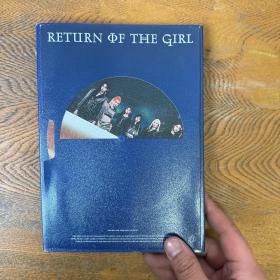
The Return of Depression Economics
¥ 115 八品
仅1件
作者Paul R. Krugman (Author)
出版社W W Norton & Co Inc (1999年 5月 1日)
出版时间1999-05
印刷时间1999-05
装帧精装
页数176页
货号P2825
上书时间2024-06-16
- 在售商品 暂无
- 平均发货时间 3小时
- 好评率 暂无
- 店主推荐
- 最新上架
商品详情
- 品相描述:八品
- 前扉页有笔画字迹。请看清图片。
- 商品描述
-
编辑推荐
What do babysitting coops and liquidity traps have in common? Lots, according to Paul Krugman. In The Return of Depression Economics, the MIT professor looks at the alarming string of financial crises that plagued various economies around the globe in the 1990s, especially the Asian contagion, and sees an "eerie resemblance to the Great Depression." Instead of the "new world order" promised by the triumph of capitalism over socialism, "the world economy has turned out to be a much more dangerous place than we imagined."
Krugman uses the example of a Washington, D.C., babysitting coop to explain the dynamics of recession and inflation. He examines the remarkable emergence of Asia and the precursors to the Asian mess--the Tequila Effect of the mid-'90s that began in Mexico and Japan's fall in the early '90s into an economic malaise. He then analyzes the underlying reasons for the collapse of the Thai baht and other Asian currencies as well as the subsequent actions of the IMF and the murky role of hedge funds. In the end, Krugman sees the return of depression economics, which "means that for the first time in two generations, failures on the demand side of the economy--insufficient private spending to make use of the available productive capacity--have become the clear and present limitation on prosperity for a large part of the world." It's the same problem that was at the root of the 1930s depression. And while it took a world war to solve that problem, Krugman sees solutions that are far less dramatic but that do require a willingness to chuck obsolete doctrines and think about old problems in new ways.
Over the years, Krugman has earned a well-deserved reputation for translating the jargon that economists speak into something that anyone with an interest--not necessarily a Ph.D.--can understand. The Return of Depression Economics is another timely testament to Krugman's ability to read and interpret the tea leaves of today's global economy. Highly recommended. --Harry C. Edwards
来自《出版家周刊》
As an economist in good standing, writes MIT economist Krugman, I am quite capable of writing things that nobody can read. Fortunately, Krugman, author of Slates Dismal Science column, is also quite capable of writing things that almost anyone can read. An accomplished translator of economics into English, Krugman (Peddling Prosperity; The Accidental Theorist; etc.) takes a look at the international financial turmoil of the past two years and concludes that, confident assertions of happy globalizers and bullish day traders notwithstanding, a great depression could happen again. Depression economics is back, he argues, meaning that for the first time in two generations, failures on the demand side of the economy... have become the clear and present limitation on prosperity for a large part of the world. Whether discussing the currency collapse in Indonesia, the travails of Brazil and Russia (and how theyre related) or the failure of hedge funds such as Long Term Capital Management, Krugman writes with invigorating lucidity and forceful opinion. Now as in the 1930s, however, one cannot defend globalization merely by repeating free-market mantras, even as economy after economy crashes. If his message is dire, his tone is light, almost jaunty as he calls supply-side economics a crank doctrine and ably articulates a Keynsian willingness to regulate markets in order to stabilize economies and minimize human suffering. Moving from concrete examples (e.g., the struggles of a Japanese baby-sitting coop) to stinging critiques of head-in-the-sand theorists, Krugman proves himself not only comprehensible but also well worth comprehending.
Copyright 1999 Reed Business Information, Inc.
来自《图书馆杂志》
Krugman (economics, M.I.T.) addresses the question, "Could the world-wide depression of the 1930s happen now?" In this short book, rushed to publication (and showing signs of hasty writing), Krugman analyzes the financial and economic situations of countries that have been experiencing difficulties in the last few years, such as Russia, Japan, six southeastern countries, and Brazil and concludes that while they are in an economic slump, this is not a return to the 1930s. What is to be done? For advanced economies, such as Japan's, he advocates a radical expansion of the money supply as an economic stimulus. In developing countries, such as Brazil, he believes that the economic medicine needed is devaluation of the currencies and even currency controls. These very complicated situations, however, do not necessarily lend themselves to such one-shot solutions. An optional purchase.AHarry Frumerman, formerly with Hunter Coll., New York
Copyright 1999 Reed Business Information, Inc.
媒体推荐
...excellent.... reading Krugman as he glances over the economic history of the past several decades is both enjoyable and thought-provoking. -- The New York Times Book Review, Floyd Norris
作者简介
Paul Krugman is Professor of Economics at the Massachusetts Institute of Technology. His book "The Age of Diminished Expectations" was called "perhaps the best little book on economics in the past ten years." (Boston Globe), and another, "Peddling Prosperity," was hailed as "The best primer around on recent US economic history." (Newsweek).
相关推荐
-

the return of monsters
九品商丘
¥ 10.20
-

The Return of Thrift
九品北京
¥ 38.00
-

Return of the Swallow
八五品北京
¥ 50.00
-

RETURN OF THE GlRL
八五品北京
¥ 58.00
-

the return of king
九品北京
¥ 25.00
-

Return of The Jeol
八品北京
¥ 10.00
-

Return of the king
八五品衡阳
¥ 180.00
-

the return of king
九品北京
¥ 35.00
-

THE RETURN OF MERLIN
八品北京
¥ 28.00
-

RETURN OF THE KING
七五品十堰
¥ 88.00
— 没有更多了 —






















以下为对购买帮助不大的评价